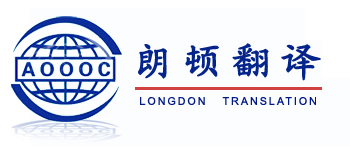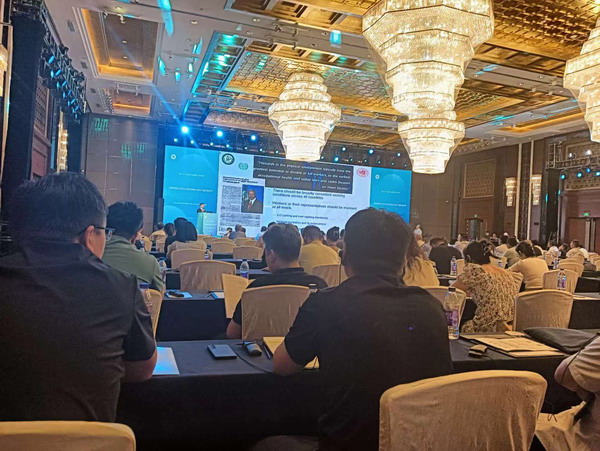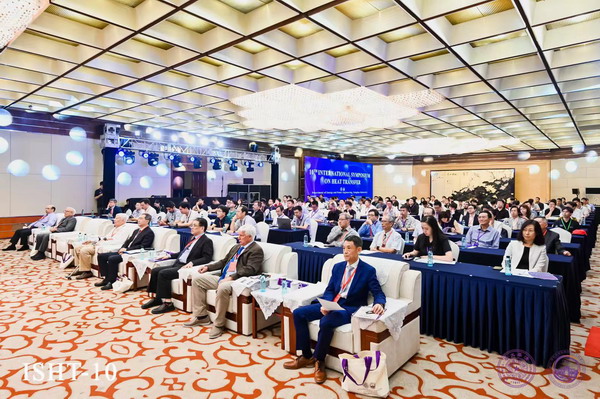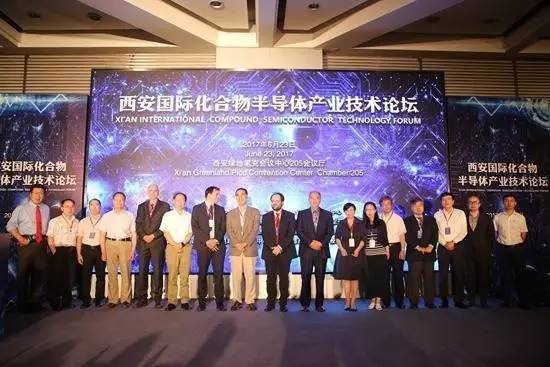A theme that emerged in Washington this summer was Donald TrumpĪ»s growing frustration with his stalled trade agenda. And with good reason.
╚A╩óŅDĮ±Ž─Ą─ę╗éĆ(g©©)įÆŅ}╩Ū╠Ų╝{Ą┬?╠ž└╩Ųš(Donald Trump)ī”(du©¼)ūį╝║Ž▌╚ļ═Ż£■Ą─┘Q(m©żo)ęūūh│╠╚šęµÅŖ(qi©óng)┴ęĄ─┤ņöĪĖąĪŻČ°Ūę╦¹ėą│õūŃĄ─└Ēė╔ĖąĄĮ┤ņöĪĪŻ
One of the presidentĪ»s biggest economic campaign promises was a new, muscular approach to trade featuring hefty tariffs on China and other rivals as well as a wholesale ripping-up of US trade agreements. Things could still change. Yet, nine months in, it is fair to say Mr Trump is looking increasingly like a bully without a playground in which to exercise his muscle.
╠ž└╩Ųšį┌Įø(j©®ng)Ø·(j©¼)ĘĮ├µūŅųž┤¾Ą─Ėé(j©¼ng)▀x│ąųZų«ę╗╩Ūę¬ū▀ę╗Ślą┬Ą─ĪóÅŖ(qi©óng)ė▓Ą─┘Q(m©żo)ęū┬ĘŠĆŻ¼╠ž³c(di©Żn)╩Ūę¬ī”(du©¼)ųąć°(gu©«)Ą╚Ėé(j©¼ng)ĀÄ(zh©źng)ī”(du©¼)╩ųķ_(k©Īi)š„Ė▀Ņ~ĻP(gu©Īn)ČÉŻ¼ęį╝░┤¾┼·╦║ܦ├└ć°(gu©«)║×╩Ą─┘Q(m©żo)ęūģf(xi©”)Č©ĪŻ╬┤üĒ(l©ói)╚į┐╔─▄│÷¼F(xi©żn)ūāöĄ(sh©┤)ĪŻ╚╗Č°Ż¼9éĆ(g©©)į┬▀^(gu©░)╚ź┴╦Ż¼└ŽīŹ(sh©¬)šf(shu©Ł)Ż¼╠ž└╩Ųš┐┤ŲüĒ(l©ói)įĮüĒ(l©ói)įĮŽ±ę╗éĆ(g©©)ø](m©”i)ėą╬Ķ┼_(t©ói)š╣╩Šūį╝║╝Ī╚ŌĄ─É║░įĪŻ
He may bark to aides gathered in the Oval Office that he wants tariffs, and threaten on Twitter to pull out of trade agreements. But the ranks of people in his administration eager or willing to carry out those threats are dwindling. Altogether, the threats themselves are looking increasingly hollow. There are three big reasons for that.
╦¹╗“įSĢ■(hu©¼)ī”(du©¼)Š█╝»į┌ÖEłAą╬▐k╣½╩ęĄ─ų·╩ųéā┼žŽ°ĘQ(ch©źng)ę¬ķ_(k©Īi)š„ĻP(gu©Īn)ČÉŻ¼į┌Twitter╔Ž═■├{═╦│÷ČÓéĆ(g©©)┘Q(m©żo)ęūģf(xi©”)Č©ĪŻĄ½╚AĖ«ųą╝▒ė┌╗“įĖęŌīó▀@ą®═■├{ĖČųTīŹ(sh©¬)╩®Ą─╣┘åTųØu£p╔┘ĪŻ┐éų«Ż¼▀@ą®═■├{▒Š╔Ē┐┤ŲüĒ(l©ói)įĮüĒ(l©ói)įĮ┐šČ┤ĪŻįŁę“ų„ę¬ėą╚²³c(di©Żn)Ż║
1. Trump doesnĪ»t control the system
1. ╠ž└╩Ųš▓ó▓╗┐žųŲš¹éĆ(g©©)¾wŽĄ
The US presidency comes with a lot of power attached. But the reality is also that its influence over trade is limited, both by the US constitution and existing laws. Mr Trump may want to impose tariffs unilaterally, yet he has very little power to do so on a whim. The US constitution gives the power to regulate trade and impose tariffs to Congress. And even those statutes that give the president the most latitude to act require a process and justification at the very least.
├└ć°(gu©«)┐éĮy(t©»ng)ų«┬Ü▒╗┘xėĶ┴╦║▄ČÓÖÓ(qu©ón)┴”ĪŻĄ½¼F(xi©żn)īŹ(sh©¬)Ą─┴Ēę╗├µ╩ŪŻ¼┐éĮy(t©»ng)ī”(du©¼)┘Q(m©żo)ęūĄ─ė░Ēæ┴”╩▄ĄĮ├└ć°(gu©«)æŚĘ©║═¼F(xi©żn)ąąĘ©┬╔Ą─ųŲ╝sĪŻ╠ž└╩Ųš╗“įSŽŻ═¹å╬ĘĮ├µķ_(k©Īi)š„ĻP(gu©Īn)ČÉŻ¼Ą½╦¹ø](m©”i)ėąČÓ┤¾ÖÓ(qu©ón)┴”┐╔ęįļSą─╦∙ė¹Ąž▀@śėū÷ĪŻ├└ć°(gu©«)æŚĘ©īó▒O(ji©Īn)╣▄┘Q(m©żo)ęū║═ķ_(k©Īi)š„ĻP(gu©Īn)ČÉĄ─ÖÓ(qu©ón)┴”┘xėĶ┴╦ć°(gu©«)Ģ■(hu©¼)ĪŻ╝┤╩╣╩Ū─Ūą®┘xėĶ┐éĮy(t©»ng)ūŅ┤¾ąąäė(d©░ng)ūįė╔Ą─Ę©ęÄ(gu©®)Ż¼ę▓ų┴╔┘ąĶę¬ę╗éĆ(g©©)▀^(gu©░)│╠║═š²«ö(d©Īng)└Ēė╔ĪŻ
Just look at what has happened with the presidentĪ»s stalled plans to impose tariffs on steel imports on the grounds of US national security. Administration officials insist they are still working on a plan. But what is holding up the steel project Ī¬ which involved using a 1974 trade law that on the face of it gives the president great powers Ī¬ is in part the laborious study involved and the inter-agency consultations required.
ų╗ąĶ┐┤┐┤╠ž└╩ŲšŽ▌╚ļ═ŻŅDĄ─ęį├└ć°(gu©«)ć°(gu©«)╝ę░▓╚½×ķė╔ī”(du©¼)õō▓─▀M(j©¼n)┐┌š„╩šĻP(gu©Īn)ČÉĄ─ėŗ(j©¼)äØįŌė÷┴╦╩▓├┤ĪŻš■Ė«╣┘åTłį(ji©Īn)ĘQ(ch©źng)Ż¼╦¹éā?n©©i)įį┌ųŲČ©ę╗Ē?xi©żng)ėŗ(j©¼)äØĪŻĄ½ūĶĄK▀@ĒŚ(xi©żng)õō▓─š„ČÉėŗ(j©¼)äØĪ¬Ī¬╔µ╝░ę²ė├1974─Ļ═©▀^(gu©░)Ą─ę╗▓┐┘Q(m©żo)ęūĘ©Ż¼įōĘ©░Ė▒Ē├µ╔Ž┘xėĶ┴╦┐éĮy(t©»ng)Š▐┤¾Ą─ÖÓ(qu©ón)┴”Ī¬Ī¬Ą─▓┐Ęų╩Ū╦∙╔µ╝░Ą─║─Ģr(sh©¬)┘M(f©©i)┴”Ą─蹊┐Ż¼▓┐Ęų╩Ū╦∙ąĶꬥ─┐ń▓┐ķT(m©”n)┤Ķ╔╠ĪŻ
Then there is Congress. The Republicans who control the legislature are by and large more pro-trade than the president. They are also more adept at using their power over the system.
╚╗║¾▀Ćėąć°(gu©«)Ģ■(hu©¼)ĪŻ┐žųŲć°(gu©«)Ģ■(hu©¼)Ą─╣▓║═³h┐é¾w╔Ž▒╚╠ž└╩Ųš┐éĮy(t©»ng)Ė³ų¦│ų┘Q(m©żo)ęūĪŻ╦¹éā▀ĆĖ³╔Ųė┌└¹ė├ūį╝║Ą─ÖÓ(qu©ón)┴”üĒ(l©ói)╣▄┐ž▀@ę╗¾wŽĄĪŻ
Moreover, the steel exercise illustrates two other parts of the system that Mr Trump doesnĪ»t control: US business and economic reality. After a shy start, everyone bar the steel sector in the US business community has grown increasingly vocal about its distaste for anything that raises the price of steel. They have also been building a compelling case for how it would hurt the US economy.
┤╦═ŌŻ¼┤╦┤╬õō▓─ĻP(gu©Īn)ČÉ╩┬╝■▀Ć▒®┬Č│÷▀@ę╗¾wŽĄųą╠ž└╩Ųš▓ó▓╗┐žųŲĄ─┴Ē═Ōā╔éĆ(g©©)▓┐ĘųŻ║├└ć°(gu©«)╔╠śI(y©©)║═Įø(j©®ng)Ø·(j©¼)¼F(xi©żn)īŹ(sh©¬)ĪŻį┌Įø(j©®ng)▀^(gu©░)ķ_(k©Īi)╩╝Ģr(sh©¬)ą▀ė┌åó²Xų«║¾Ż¼│²õōĶFśI(y©©)ų«═ŌŻ¼├└ć°(gu©«)╔╠Įń╦∙ėą╚╦Č╝įĮüĒ(l©ói)įĮ┤¾┬ĢĄžĘ┤ī”(du©¼)╚╬║╬īó═ŲĖ▀õō▓─ār(ji©ż)Ė±Ą─ū÷Ę©ĪŻ╦¹éāę▓ę╗ų▒į┌×ķķ_(k©Īi)š„õō▓─▀M(j©¼n)┐┌ĻP(gu©Īn)ČÉīóōp║”├└ć°(gu©«)Įø(j©®ng)Ø·(j©¼)īżšęę╗éĆ(g©©)┴Ņ╚╦ą┼Ę■Ą─└Ēė╔ĪŻ
2. The US doesnĪ»t wield the power Trump thinks it does on trade
2. į┌┘Q(m©żo)ęūĘĮ├µŻ¼├└ć°(gu©«)▓ó▓╗ōĒėąŽ±╠ž└╩ŲššJ(r©©n)×ķĄ──Ū├┤┤¾Ą─ÖÓ(qu©ón)ä▌(sh©¼)
The best example of this is the (again) stalled debate within the administration over pulling the US out of a South Korea-US trade agreement (Korus) that came into force in 2012. Jonathan Swan of Axios did a nice job at the weekend of detailing the conversation within the administration in recent weeks and how (as was the case with Nafta in April) the president got very close to issuing a formal notice of withdrawal.
▀@ĘĮ├µūŅŪĪ«ö(d©Īng)?sh©┤)─└²ūė╩Ū╠ž└╩Ųšš■Ė«ā?n©©i)▓┐ęčĮø(j©®ng)═Żų╣Ą─ĻP(gu©Īn)ė┌ūī├└ć°(gu©«)═╦│÷2012─Ļ╔·ą¦Ą─ĪČĒn├└ūįė╔┘Q(m©żo)ęūģf(xi©”)Č©ĪĘ(KORUS FTA)Ą─ĀÄ(zh©źng)šōĪŻAxiosĄ─å╠╝{╔Ł?╦╣═·(Jonathan Swan)╔Žų▄─®ū÷Ą├║▄║├Ż¼╦¹įö╝Ü(x©¼)┼¹┬Č┴╦ūŅĮ³Äūų▄š■Ė«ā╚(n©©i)▓┐Ą─ėąĻP(gu©Īn)ī”(du©¼)įÆŻ¼ęį╝░╠ž└╩ŲšČÓ├┤ĮėĮ³ė┌░l(f©Ī)▓╝ę╗Ę▌═╦│÷ģf(xi©”)Č©Ą─š²╩Į═©ų¬Ī¬Ī¬š²╚ńĮ±─Ļ4į┬═╦│÷ĪČ▒▒├└ūįė╔┘Q(m©żo)ęūģf(xi©”)Č©ĪĘ(NAFTA)─ŪśėĪŻ
The idea has since stalled, thanks to North KoreaĪ»s recent nuclear test and the acceptance (for now) by the president that withdrawing from a trade agreement with South Korea in its wake does not make geopolitical sense.
ė╔ė┌│»§rĮ³Ų┌Ą─║╦įć“×(y©żn)Ż¼╝ė╔Ž╠ž└╩Ųš┐éĮy(t©»ng)Ż©Ģ║Ģr(sh©¬)Ż®│ąšJ(r©©n)┤╦Ģr(sh©¬)═╦│÷Ēn├└ūį┘Q(m©żo)ģf(xi©”)Č©Å─ĄžŠēš■ų╬╔ŽüĒ(l©ói)šf(shu©Ł)▓╗┐╔╚ĪŻ¼▀@ę╗ŽļĘ©ęčĮø(j©®ng)▒╗öRų├ĪŻ
But the example also illustrates how the US has been misplaying its cards.
Ą½▀@éĆ(g©©)└²ūėę▓šf(shu©Ł)├„┴╦├└ć°(gu©«)ę╗ų▒į┌│÷Õe(cu©░)┼ŲĪŻ
During a special meeting convened during the summer to discuss Mr TrumpĪ»s concerns over Korus and the US trade deficit with South Korea, Robert Lighthizer, the US trade representative, issued a list of unilateral concessions that he wanted to see Seoul make. Those, according to people briefed on the discussions, included accelerating the Korus schedule for South KoreaĪ»s gradual removal of certain tariffs on US goods and a freeze on the same applying to Korean imports into the US.
į┌Į±Ž─š┘ķ_(k©Īi)Ą─ę╗┤╬ėæšō╠ž└╩Ųšī”(du©¼)Ēn├└ūį┘Q(m©żo)ģf(xi©”)Č©Ą─ō·(d©Īn)æn(y©Łu)╝░├└ć°(gu©«)ī”(du©¼)Ēn┘Q(m©żo)ęū─µ▓ŅĄ─╠žäeĢ■(hu©¼)ūh╔ŽŻ¼├└ć°(gu©«)┘Q(m©żo)ęū┤·▒Ē┴_▓«╠ž?╚R╠žŽŻØ╔(Robert Lighthizer)─├│÷┴╦ę╗Ę▌╦¹ŽŻ═¹┐┤ĄĮ╩ūĀ¢ū÷│÷Ą─å╬ĘĮ├µūī▓ĮĄ─ŪÕå╬ĪŻō■(j©┤)┴╦ĮŌ┤╦┤╬ėæšōĄ─╚╦╩┐═Ė┬ČŻ¼Ųõųą░³└©ūīĒnć°(gu©«)╝ė┐ņų▓Į╚ĪŽ¹ī”(du©¼)├└ć°(gu©«)╔╠ŲĘĄ──│ą®ĻP(gu©Īn)ČÉŻ¼Ą½ī”(du©¼)Ēnć°(gu©«)│÷┐┌├└ć°(gu©«)Ą─╔╠ŲĘ▓╗īŹ(sh©¬)╩®▀@śėĄ─š■▓▀ĪŻ
Mr Lighthizer was in effect using the same threat-laced playbook that he employed in the 1980s while negotiating Ī░voluntary export restraintsĪ▒ with Japan as a senior trade official in the Reagan administration. But the answer this time from South KoreaĪ»s trade minister, Kim Hyun-chong, was a resounding Ī░no thanksĪ▒.
╚R╠žŽŻØ╔īŹ(sh©¬)ļH╔Žųž╩®┴╦į┌╔Ž╩└╝o(j©¼)80─Ļ┤·╩╣ė├▀^(gu©░)Ą─═■├{▓▀┬įŻ¼«ö(d©Īng)Ģr(sh©¬)╦¹ū„×ķ└’Ė∙(Reagan)š■Ė«Ą─ę╗├¹Ė▀╝ē(j©¬)┘Q(m©żo)ęū╣┘åT┼c╚š▒Ššä┼ąĪ░ūįįĖ│÷┐┌Ž▐ųŲĪ▒ĪŻĄ½▀@ę╗┤╬Ż¼Ēnć°(gu©«)┘Q(m©żo)ęū▓┐ķL(zh©Żng)ĮŃCū┌(Kim Hyun-chong)ū„│÷┴╦ńHńIėą┴”Ą─╗ž┤Ż║Ī░▓╗Ż¼ųxųxĪ▒ĪŻ
The response by Mr Kim, who led the Korean team that negotiated the original deal, was very well calculated. He was aware of one blunt reality: the unwinding of Korus would lead to much higher tariffs on US imports into South Korea than vice versa.
ĮŃCū┌Ą─╗žæ¬(y©®ng)╩ŪĮø(j©®ng)▀^(gu©░)Š½ą─▒P(p©ón)╦ŃĄ─Ż¼įŁ▒ŠĒn├└ūį┘Q(m©żo)ģf(xi©”)Č©Š═╩Ū╦¹┬╩ŅI(l©½ng)Ēnć°(gu©«)łF(tu©ón)ĻĀ(du©¼)šä┼ąĄ─ĪŻ╦¹║▄ŪÕ│■ę╗éĆ(g©©)╩┬īŹ(sh©¬)Ż║Ēn├└ūį┘Q(m©żo)ģf(xi©”)Č©╚ĪŽ¹Ż¼īóī¦(d©Żo)ų┬├└ć°(gu©«)ī”(du©¼)Ēn│÷┐┌╔╠ŲĘĻP(gu©Īn)ČÉ┤¾Ę∙╠ß╔²Ż¼Č°ĘŪĘ┤▀^(gu©░)üĒ(l©ói)ĪŻ
But there was another. Simply, the US in the Trump era does not speak with a unified voice on trade. Congress, the US Chamber of Commerce, myriad agricultural groups and the nationĪ»s chief executives have all come out against the Trump plan to withdraw from Korus during the past week. And that illustrates WashingtonĪ»s diminishing power at the negotiating table.
Ą½▀Ćėą┴Ēę╗éĆ(g©©)įŁę“ĪŻ║å(ji©Żn)čįų«Ż¼╠ž└╩ŲšĢr(sh©¬)┤·Ż¼├└ć°(gu©«)į┌┘Q(m©żo)ęūå¢(w©©n)Ņ}╔Ž▓óø](m©”i)ėąĮy(t©»ng)ę╗Ą─┬Ģę¶ĪŻĮ³╚šŻ¼├└ć°(gu©«)ć°(gu©«)Ģ■(hu©¼)Īó├└ć°(gu©«)╔╠Ģ■(hu©¼)(US Chamber of Commerce)Īó┤¾┴┐Ą─▐r(n©«ng)śI(y©©)ĮM┐Śęį╝░├└ć°(gu©«)Ą─╩ūŽ»ł╠(zh©¬)ąą╣┘éāČ╝šŠ│÷üĒ(l©ói)Ę┤ī”(du©¼)╠ž└╩Ųš═╦│÷Ēn├└ūį┘Q(m©żo)ģf(xi©”)Č©Ą─ėŗ(j©¼)äØĪŻ▀@ę▓šf(shu©Ł)├„╚A╩óŅDį┌šä┼ąū└╔ŽĄ─ė░Ēæ┴”Ģ■(hu©¼)╚šęµ£p╚§ĪŻ
3. Business is no longer afraid of Trump
3. ╔╠Įń▓╗į┘æų┼┬╠ž└╩Ųš
The defining debate so far on trade within the Trump administration has been between the Ī░economic nationalistsĪ▒ and the globalists. However, with one high-profile exception (Mr TrumpĪ»s withdrawal on day three of his presidency from the Trans-Pacific Partnership), the globalists have been winning the war.
ĄĮ─┐Ū░×ķų╣Ż¼╠ž└╩Ųšš■Ė«ā╚(n©©i)▓┐ĻP(gu©Īn)ė┌┘Q(m©żo)ęūĄ─øQČ©ąį▐qšōę╗ų▒╩Ūį┌Ī░Įø(j©®ng)Ø·(j©¼)├±ūÕų„┴xš▀Ī▒┼c╚½Ū“ų„┴xš▀ų«ķg▀M(j©¼n)ąąĪŻ╚╗Č°Ż¼│²┴╦ę╗┤╬ę²╚╦ūó─┐Ą─└²═ŌĪ¬Ī¬╠ž└╩Ųš╔Ž╚╬Ą┌╚²╠ņŠ═ą¹▓╝═╦│÷ĪČ┐ń╠½ŲĮč¾╗’░ķĻP(gu©Īn)ŽĄģf(xi©”)Č©ĪĘ(TPP)Ī¬Ī¬╚½Ū“ų„┴xš▀į┌▀@ł÷(ch©Żng)ČĘĀÄ(zh©źng)ųąę╗ų▒╠Äė┌╔Ž’L(f©źng)ĪŻ
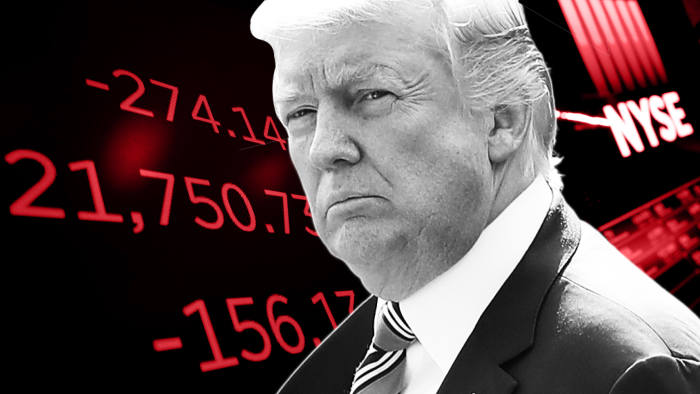
That is a reflection of the work and importance within the administration of globalists such asGary Cohn, head of the National Economic Council, and his team. It also, however, illustrateshow companies are no longer afraid of Mr TrumpĪ»s use of the social-media bully pulpit and howhis hyperbole is backfiring.
▀@Ę┤ė│┴╦╚½Ū“ų„┴xš▀Ī¬Ī¬╚ńć°(gu©«)╝ęĮø(j©®ng)Ø·(j©¼)╬»åTĢ■(hu©¼)(National Economic Council)ų„Ž»╝ė└’?┐ŲČ„(Gary Cohn)Ą╚╝░ŲõłF(tu©ón)ĻĀ(du©¼)Ī¬Ī¬į┌š■Ė«ā╚(n©©i)▓┐Ą─╣żū„║═ųžę¬ąįĪŻ╚╗Č°Ż¼▀@ę▓šf(shu©Ł)├„┴╦Ų¾śI(y©©)Įń▓╗į┘æų┼┬╠ž└╩Ųš└¹ė├╔ńĮ╗├Į¾wą╬╩ĮĄ─Ī░╠ņūųĄ┌ę╗╠¢(h©żo)ųvē»Ī▒Īóęį╝░╦¹Ą─┐õÅłčį▐oĢ■(hu©¼)«a(ch©Żn)╔·╩▓├┤Ę┤ū„ė├ĪŻ
Companies have learnt quickly how to combat the presidentĪ»s worst ideas on trade anddiscovered they have plenty of allies in both his White House and his cabinet. Many also donĪ»tbelieve his threats any more. For a president whose threats are his biggest currency that is onlylikely to lead to more frustration.
├└ć°(gu©«)Ų¾śI(y©©)Įń║▄┐ņīW(xu©”)Ģ■(hu©¼)┴╦╚ń║╬æ¬(y©®ng)ī”(du©¼)╠ž└╩ŲšĻP(gu©Īn)ė┌┘Q(m©żo)ęūĄ─įŃĖŌŽļĘ©Ż¼▓ó░l(f©Ī)¼F(xi©żn)╦¹éā?c©©)┌╠ž└╩ŲšĄ─░ūīm║═ā╚(n©©i)ķwųąČ╝ėą║▄ČÓ├╦ėčĪŻįSČÓ╚╦ę▓▓╗į┘ŽÓą┼╦¹░l(f©Ī)│÷Ą─═■├{ĪŻī”(du©¼)ė┌ę╗╬╗æTė┌ė├═■├{Ė·╚╦┤“Į╗Ą└Ą─┐éĮy(t©»ng)Č°čįŻ¼▀@ų╗Ģ■(hu©¼)ĦüĒ(l©ói)Ė³ČÓĄ─┤ņöĪĖąĪŻ
